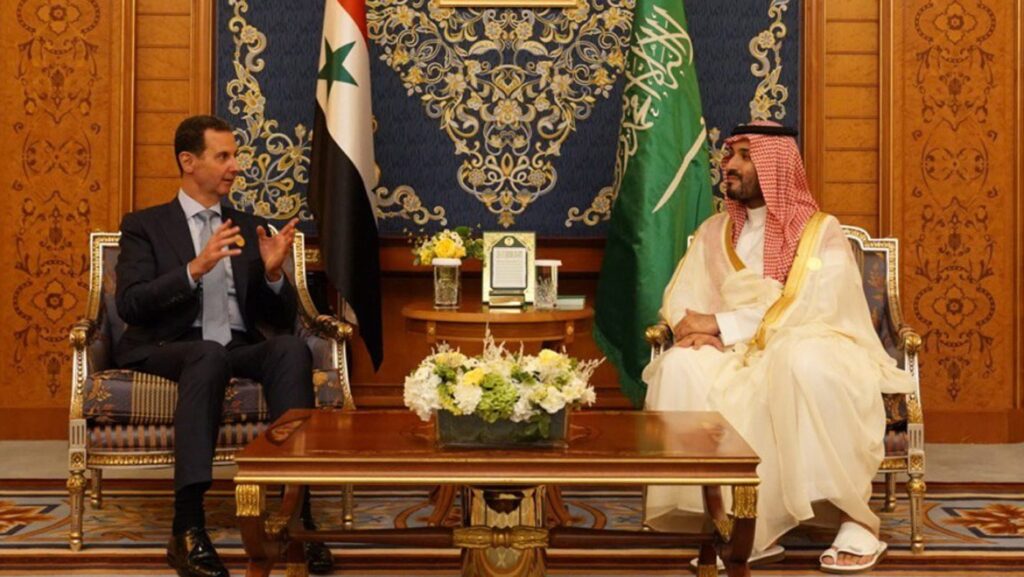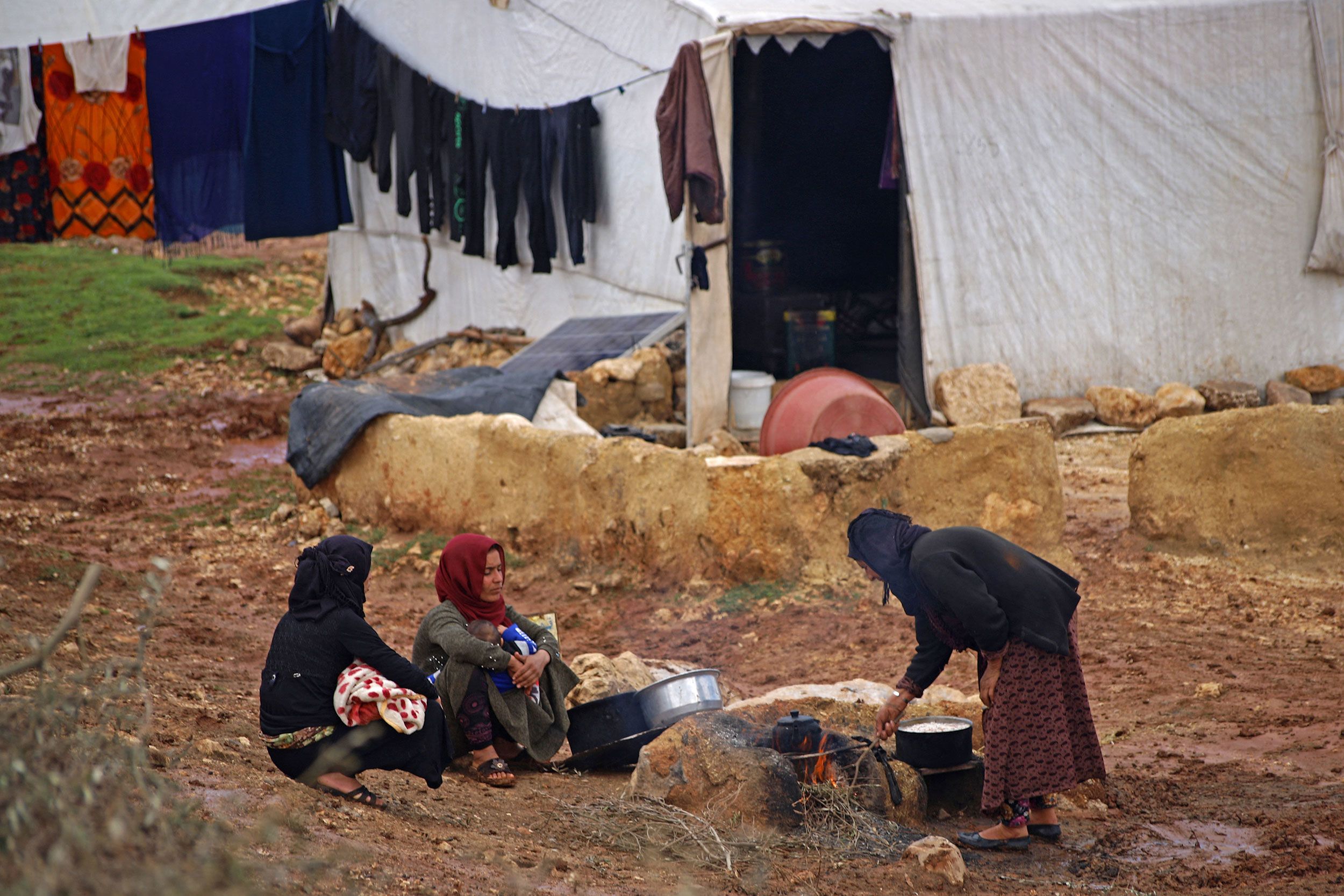
President Bashar al-Assad strode into the Arab League summit in Jeddah, relishing the clearest recognition yet that he has won his war for Syria.
He was embraced by the Saudi Crown Prince Mohammed bin Salman. A decade ago, the Saudis funded anti-Assad militias. Now the prince, known as MBS, wants to remake the Middle East, and he needs Syria onside.
In a speech, President Assad insisted that Syria would always belong to the Arab world. But other countries should not interfere with what happened inside its borders.
“It is important to leave internal affairs to the country’s people as they are best able to manage them,” he said.
By the people, President Assad meant the leader and his supporters. Between them, the princes and presidents at the summit have locked up many thousands of their opponents.
Events in Jeddah are being viewed with dismay by Syrians who blame the Assad regime for destroying their country, including all the Syrian refugees I have spoken to in Lebanon.
Lebanon, small and poor, has had to tolerate well over two million Syrians fleeing the war. That is the equivalent of half the Lebanese population according to Lebanese officials
Now many Lebanese have had enough, making Syrians a convenient scapegoat for their own country’s chronic economic and political problems.
In the last few weeks, the army has deported around 1,500 of them back over the border at gunpoint, sometimes leaving children behind in Lebanon or forcing children out without their parents.
A refugee family speaking on condition that their identities were kept secret talked about life in a town near Beirut where a curfew has been imposed on Syrians.
The children have been thrown out of school. The turmoil in their lives is clear in their teenage daughter’s anguished artwork. Their father views the authoritarian Arab leaders embrace of Bashar al-Assad with contempt – and fear.
“The Assad regime is a dictatorship – the same as the other Arab regimes. They’re helping each other, cooperating against the people.”
In a refugee camp in Lebanon’s Bekaa Valley, Assad’s presence in Jeddah was another crushing blow. Nasser and Marwa, a couple who’ve been here since 2013, fear Assad’s return to the Arab League might be an excuse for more deportations.
Marwa said she woke up every morning thanking God she hadn’t been deported.
“Now we’re always afraid of the raids. I always imagine that they will come and take all the men and deport them.”
Nasser said he faced being drafted into the army if he went back. He escaped Syria to avoid fighting for the regime. He’s desperately worried about what would happen to his wife and their 18-month-old daughter Lillas if they are forced back.
At the United Nations, which runs a huge relief operation in Syria and Lebanon, there is cautious hope Syria’s readmission to the Arab League might somehow become a circuit breaker that allows diplomatic progress.
Imran Riza, the UN’s deputy special coordinator for Lebanon, tried to find a positive.
“If what’s happening now in the region is going to help to get us to a political solution then it’s a good thing.”
But the UN does not support forced repatriation. It insists that Syrian refugees cannot return home until their country is safe and secure. That is a long way off.
President Bashar al-Assad broke his country to save his regime. There has been no justice for his victims.
But there is a lesson for ruthless, authoritarian leaders, not least his close ally, Russia’s President Vladimir Putin, whose decisive military intervention in 2015 helped the Assad regime to victory.
Wait out the storm and you can outlast your enemies.
BBC/ News Agencies


Leave a Reply
You must be logged in to post a comment.